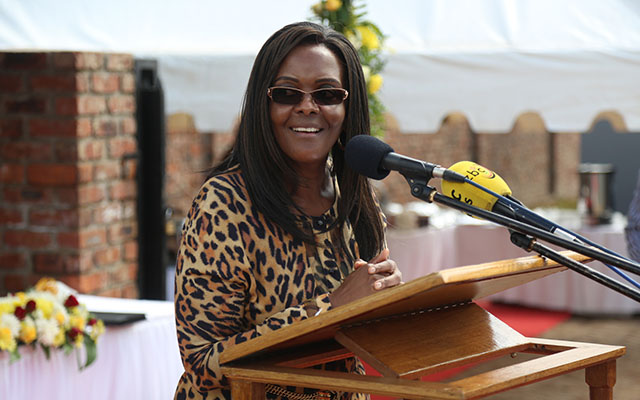Msipa publishes debut novella

Beaven Tapureta Bookshelf
Last week Bookshelf focused on girl child literature by new writer Tatenda Munyuki whom it said has revived the theme after some writers seem to have shunned it. Another writer Edwin Msipa has recently added his voice against girl child abuse in his debut self-published novella “Broken Chalk” (2017), thus confirming growing new interest in the theme.His book comes at a moment when “Live Like An Artist”, a collection of poems by senior writer David Mungoshi has also landed in the bookshelf. Furthermore, other differently themed books titled “The Battle for Altars” (2017, Days of My Youth Press) by Apostle J. Shava and “The Magician” (2017, Essential Books Publishing) by Norton-based Aleck Kaposa have also hit the Bookshelf and what an exciting reading adventure this takes us on!
Msipa’s novella “Broken Chalk”, which is only about 80-pages long, enriches the reader with its engagement with an educative plot and goes just beyond home-based child abuse to the global threat of what is known as sex trafficking or sexual exploitation of girls and women. While in Munyuki’s booklets “Paida: The Village Girl” and “Paida: The Struggle”, the stories do not go beyond the abuse at home, Msipa makes mind-opening inquests into a new feature of abuse known as sex trafficking. Sex trafficking is happening in Africa and most at risk are young girls or women who are lured by recruiters with promises of education and high paying jobs overseas. After being taken abroad, it then dawns upon the victims that all the promises given by the recruiters are but a gimmick to have them work in the sex trade. In Msipa’s story, the ‘trafficking’ is localised. The promise of jobs overseas dwindles as victims awaken to abusive reality in the hands of a local dubious employment agency.
Commenting on the novella, its editor Mudikani Gondora who has in the past strongly condemned the abuse of girl child rights, said, “Amongst the books I have read, particularly dedicated to the girl child, ‘Broken Child’ is that book that pays attention to the woes and trials an orphaned girl in poverty goes through. It is a rich narration in simple English; however not so simple a story it is!”
Mudikani also said she would recommend everyone especially young readers to read “Broken Chalk” because it focuses on the experiences any young person may go through.
Through the 16-year old main character Shingirirai Chitova, the reader is made to understand how the broken chalk serves as a central metaphor in this tale. It highlights what happens when education, especially of girls and women, is made peripheral. Shingi is an Advanced Level student who has set hopes on attaining university education but because of factors such as poverty, family breakdown and AIDS, she finds herself having to fight to win. Her situation is made worse by the abuser, her uncle Toro, who launches her life into painful chaos. She narrates her story with linguistic and/or descriptive wit and power, stroking the reader’s mind with her consciousness of modern day plight of girls.
The first few pages begin with a moving summary of context. Shingirirai lives with her HIV-positive widowed mother Rungano, her HIV-positive twin siblings Zivai and Tsvakai. After a few years, Uncle Toro or Chinemukutu, who is also HIV-positive, comes to take Shingi to his home so that he stays with her and helps her education but he has other ulterior motives.
Instead of driving Shingi to his home, he takes her to a deep forest where, under the instruction of a traditional healer Chipanera, he rapes her. This scene highlights violence against girls when culture is used to deceive Toro that HIV can be cured by sex with a virgin. This scene introduces subsequent scenes, climactic action unfolding in captivating twists and turns.
After the rape in the forest, Shingi escapes half-clothed but she is involved in a road accident and is taken to hospital. To those who see her first, she appears a witch and this witch version of her story takes the media by storm leading the Good Samaritan Mrs Makumbe to help her escape from the hospital and protect her at home. It is at Mrs Makumbe’s home that the deadly deceit of Uncle Toro’s company Inter-Jobs Connections (IJC) follows Shingi. What follows are thrilling but educative scenes and action, exposing the evil operations of the company IJC, finally leading to the capture of Toro and his accomplices. There are many captivating little stories that arise from the main story, bringing to the foreground various issues that need to be considered in the fight against girl child abuse. The story’s end is satisfying as Shingi emerges the hero. The Broken Chalk is indeed one of the books that can enrich our new curriculum which is strongly calling for local content.
Msipa is a true educator, a poet and storyteller. He founded Porta Farm Secondary School in 1998 and three years later did teacher training at Nyadire Teachers College.
He has been involved in the formation of Tariro Primary and Secondary Schools in the disadvantaged community of Hopley. In 2013, he released a non fiction book “Gadziriro Yemazamanishoni”. His poems have appeared in anthologies such as “Silent Drums” (2014), “Zviri Mugapu” (2014), “Black Stars” (2014), “Tsuro Ndisunge” (2015) and the 2015 NAMA-nominated “Dzinonyandura” which is currently an Advanced Level setbook. His published children’s stories are “Takunda Nemadzuramoyo” (2013) and “Takunda Nemagororo” (2014). He is not new to local writers’ organisations such as ZWA, ZANA and WIN-Zimbabwe.








Comments